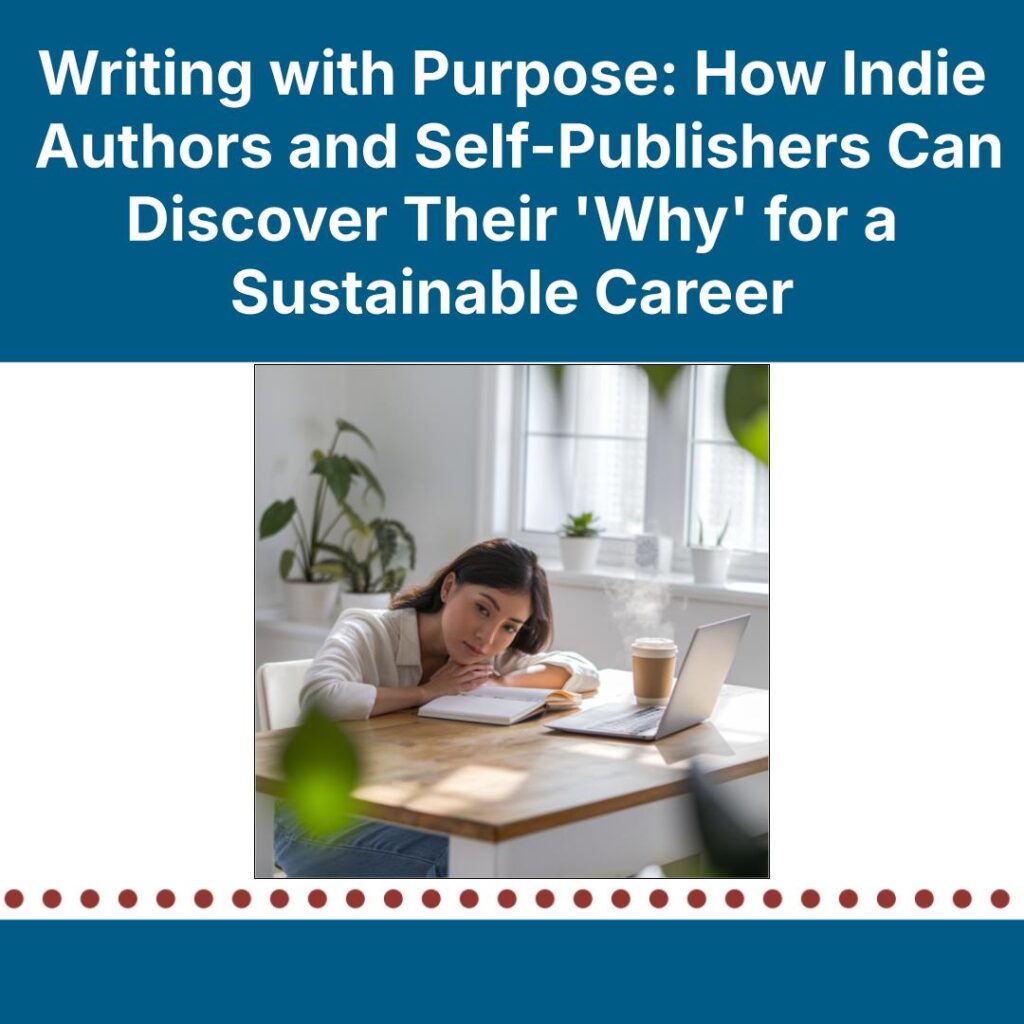Have you ever wondered if self-publishing can actually make you money? Maybe you have a story or expertise to share, but you’re unsure if putting in the effort will pay off.
The truth is, self-publishing has the potential to be profitable—but it’s not automatic. Your success depends on smart choices, clear strategies, and understanding what really works. You’ll discover the key factors that influence your earnings and how to turn your self-published book into a steady income source.
Keep reading, because what you learn here could change the way you approach your writing—and your future.

Credit: www.publishing.com
Self Publishing Basics
Self publishing lets authors share their work without a traditional publisher. It gives full control over the book’s content, design, and sales. Many writers choose this path to keep higher profits and reach readers directly.
Understanding the key steps is important for success. The process involves writing, editing, formatting, and marketing your book. Each step needs careful attention to make the book attractive and easy to read.
Choosing The Right Platform
Several platforms help authors publish books online. Amazon Kindle Direct Publishing is popular and easy to use. Others include Smashwords, Draft2Digital, and Apple Books. Each platform has different rules and royalty rates.
Formatting Your Book
Proper formatting makes reading easy on all devices. Use simple fonts and clear chapter breaks. Convert your manuscript into formats like EPUB or MOBI. Many tools and services can help with this step.
Setting The Price
Price your book based on length, genre, and audience. Competitive pricing attracts more readers. Some platforms let you set discounts or run promotions. Watch how price changes affect your sales.
Marketing Strategies
Marketing helps readers find your book. Use social media, blogs, and email newsletters. Reviews and word of mouth build trust. A good cover and clear description also attract buyers.

Credit: indieauthormagazine.com
Cost Factors In Self Publishing
Self publishing costs vary depending on many factors. Understanding these costs helps writers budget and plan better. Some expenses are optional, while others are necessary to produce a quality book.
Knowing each cost type can clarify if self publishing is profitable. Costs affect the final price and the book’s success. Careful spending can improve profits and reader satisfaction.
Editing And Proofreading
Good editing improves book quality and reader trust. Professional editors check grammar, style, and flow. Proofreading catches small errors before publishing. These services usually charge by word or hour.
Book Cover Design
A strong cover attracts readers and boosts sales. Designers create covers based on book genre and theme. Custom designs cost more but look more professional. Some authors use pre-made covers to save money.
Formatting And Layout
Proper formatting makes a book easy to read. Formatting applies to print and eBook versions. Services vary from DIY tools to professional help. Poor formatting can cause negative reviews and returns.
Marketing And Promotion
Marketing helps books reach more readers. Costs include ads, social media, and book giveaways. Some authors hire publicists or use paid services. Marketing budgets differ widely based on goals.
Printing And Distribution
Print costs depend on book size, pages, and quantity. Print-on-demand reduces upfront printing expenses. Distribution may involve fees for platforms or retailers. Choosing the right method affects profit margins.
Revenue Streams For Indie Authors
Indie authors have many ways to earn money from their books. These different income sources help make self-publishing profitable. Understanding these revenue streams helps writers plan better.
Each stream works in its own way. Some bring steady income, others give a boost now and then. Combining several streams can increase overall earnings.
Book Sales
Book sales are the main income for most indie authors. Selling ebooks, print books, and audiobooks brings direct revenue. Pricing strategies affect how much money authors make.
Many indie authors sell books on platforms like Amazon Kindle Direct Publishing. Pricing books lower can attract more readers but reduce profit per sale. Finding the right balance is key.
Royalties From Retailers
Retailers pay royalties based on book sales. Ebook royalties usually range from 35% to 70% of the sale price. Print book royalties are often lower but still important.
Authors should understand royalty terms for each platform. This knowledge helps maximize earnings and avoid surprises. Some platforms offer higher royalties for exclusive content.
Direct Sales
Some authors sell books directly through their websites. Direct sales avoid retailer fees and increase profit margins. Authors can also build closer relationships with readers this way.
Offering signed copies or special editions can attract buyers. Direct sales require marketing effort but often pay off well.
Subscriptions And Memberships
Subscription services like Kindle Unlimited pay authors based on pages read. This model rewards engaging content that keeps readers hooked. Authors with series or multiple books benefit most.
Membership platforms allow authors to offer exclusive content for a fee. This steady income stream builds a loyal audience over time.
Ancillary Products And Services
Some indie authors sell related products like workbooks or courses. These add value and create extra income. Offering coaching or speaking engagements also brings revenue.
Ancillary products help diversify income and reach new audiences. They make the author’s brand stronger and more profitable.
Marketing Strategies That Work
Marketing plays a big role in self-publishing success. Good marketing helps your book reach readers. It can increase sales and build your author brand.
Simple and clear marketing methods often bring the best results. Focus on strategies that connect with your audience and keep them interested.
Email Newsletters
Building an email list lets you talk directly to readers. Send updates, special offers, and new releases. Emails create a personal connection and encourage repeat sales.
Social Media Engagement
Use social media to share book news and interact with readers. Post regularly and join groups related to your book’s topic. Respond to comments to build trust and loyalty.
Book Reviews
Reviews boost your book’s credibility and visibility. Ask readers and bloggers to review your book. Positive reviews attract new readers and improve search rankings.
Book Giveaways
Giveaways create buzz and attract attention. Offer free copies for a limited time or in contests. This helps spread the word and gain more readers quickly.
Targeted Advertising
Paid ads on platforms like Facebook or Amazon can reach specific readers. Start with a small budget and track results. Ads help increase visibility and sales.
Common Challenges And Solutions
Self-publishing offers many rewards but also some tough challenges. Knowing common problems helps authors find smart solutions. This keeps the path clear and profits steady. Each obstacle has ways to handle it well.
Understanding Market Demand
Many writers struggle to find readers for their books. Without clear demand, sales stay low. Research the audience before writing. Use surveys and social media to learn what readers want. Adjust your book’s topic or style to fit the market.
Creating Professional Quality Books
Readers expect good editing, cover design, and formatting. Low-quality books get poor reviews and fewer sales. Hire editors and designers if possible. Use online tools to improve your book’s look. A polished book builds trust and attracts buyers.
Effective Book Marketing
Marketing is key to making sales. Many self-publishers find this part hard. Use simple tactics like email lists and social media posts. Connect with readers and other authors. Share helpful content related to your book’s topic. Consistent marketing grows your audience over time.
Managing Time And Costs
Self-publishing takes time and money. Some authors feel overwhelmed or run out of budget. Plan your schedule and expenses carefully. Set small goals to stay on track. Use free or low-cost tools for editing and marketing. Balance effort with resources for steady progress.
Case Studies Of Successful Authors
Many authors have found success through self publishing. Their stories show how this path can be profitable. These case studies reveal common strategies and outcomes. They offer real examples of earnings and growth.
Each author faced challenges but made smart choices. They built audiences and sold books online. Their experiences help understand the potential of self publishing.
Hugh Howey’s Rise from Indie AuthorHugh Howey started by publishing his sci-fi stories online. His series “Wool” gained a large fan base quickly. He kept control of his rights and earned high royalties. His income grew steadily over time. Howey’s success proves self publishing can match traditional deals.
Amanda Hocking’s Journey to BestsellerAmanda Hocking wrote paranormal fiction and self published on eBook platforms. She sold thousands of copies without a publisher. Her books attracted attention from big publishers later. Hocking made millions before signing any contract. Her story inspires many new authors.
Mark Dawson’s Marketing and Sales StrategyMark Dawson focused on marketing to grow his thriller audience. He used social media ads and email lists to boost sales. Dawson regularly released new books to keep readers engaged. His approach led to consistent profits and a strong brand. This case highlights the power of marketing in self publishing.
Bella Andre’s Steady Growth and Fan BaseBella Andre built a loyal fan base through romance novels. She published series with connected characters to keep readers coming back. Andre’s steady book releases created reliable income streams. Her success shows the value of writing in popular genres.
Tools To Maximize Profits
Self-publishing can bring good profits. Using the right tools helps increase earnings. These tools save time and improve book quality. They also help reach more readers. Below are key tools to boost self-publishing profits.
Keyword Research Tools
Keyword research tools find popular words readers search. Using these words in your book title and description helps sales. Tools like Google Keyword Planner and Ubersuggest show what readers want. This helps your book appear in search results.
Formatting Software
Good formatting makes your book look professional. Tools like Vellum or Scrivener format eBooks and print books easily. Proper formatting improves reading experience. Readers prefer books that look neat and clean.
Marketing Platforms
Marketing platforms help promote your book to many people. Facebook Ads and Amazon Marketing Services target specific readers. These platforms allow small budgets with good results. Promotion increases book visibility and sales.
Sales Tracking Tools
Tracking sales helps understand what works. Tools like BookReport or KDP Rocket show sales data clearly. Knowing which books sell best guides your future writing. Tracking prevents waste of time and money.

Credit: books.forbes.com
Frequently Asked Questions
What Is Self Publishing Profitability Potential?
Self publishing can earn money, but success depends on quality, marketing, and audience size.
How Much Can New Authors Earn From Self Publishing?
New authors often earn little at first; income grows with more books and promotion.
What Costs Are Involved In Self Publishing?
Costs include editing, cover design, formatting, and marketing, which affect overall profits.
How Does Marketing Affect Self Publishing Profits?
Good marketing increases book visibility and sales, directly boosting profit chances.
Is Self Publishing More Profitable Than Traditional Publishing?
Self publishing offers higher royalties but requires more effort and upfront costs.
What Genres Are Most Profitable In Self Publishing?
Romance, mystery, and self-help genres often sell well and generate better profits.
How Long Does It Take To Make Profit From Self Publishing?
Profit may take months or years as building readers and sales takes time.
Conclusion
Self-publishing can bring good profits with the right effort and plan. Success depends on writing quality, marketing, and patience. Many authors earn steady income over time. It takes work to reach readers and build trust. Profit is possible but not guaranteed quickly.
Keep learning and improving your skills. Enjoy the creative freedom self-publishing offers. Writing your own book can be rewarding beyond money. Stay consistent and open to feedback. This path suits those who work hard and stay patient.